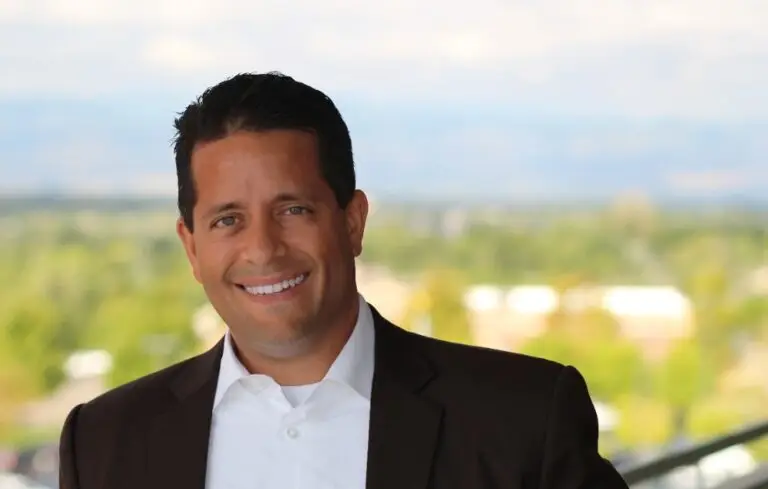 Michigan hatched the first automotive revolution in America, and now the state is positioning itself to lead the industry’s transition to electric vehicles.
Michigan hatched the first automotive revolution in America, and now the state is positioning itself to lead the industry’s transition to electric vehicles.
Established auto companies, EV startups, suppliers and infrastructure providers are pouring tens of billions of dollars into investments in the Michigan economy that will ensure the nation’s birthplace of the automobile will continue to be the most important nexus as the transformation of transportation technology accelerates.
In the new scrum for plants and job-creating investments, Michigan has secured major commitments from General Motors and Ford to assemble new EV models here, which will vastly expand the industry’s existing battery-electric-vehicle output in the state.
Just as important, Michigan is leveraging the electrification era to build on its legacy as North America’s most important center of automotive research, development and design. And the state is among a small group of pioneers pushing the envelope on the new transportation infrastructure that will be required for EVs to go truly mainstream with car buyers.
“We are playing together as a team in Michigan, from industry to government to higher education, and when we do that here, this state will be impossible to beat as the automobile continues to evolve,” says Quentin Messer, chief executive officer of the Michigan Economic Development Corporation. “We have built-in manufacturing capability, the supply chain, proximity within the industry, the research and education base, and now social connectivity and networking that are putting us in an even better place to innovate going forward.”
Denise Gray agrees. “As this industry continues to evolve from vehicles based on internal-combustion engines to those that are electrified and autonomous, Michigan is still one of the global epicenters, and certainly the one in this country,” says the head of external affairs and government relations of LG Energy Solution Inc. , the North American subsidiary of the South Korea-based battery manufacturer, which makes EV batteries at a high-volume plant in Holland and develops battery systems in Troy.
As it competes in a high-profile derby with other states for fresh investments in manufacturing batteries and assembling all-electric and hybrid vehicles, Michigan enjoys the most established footprint of EV production in the world, with facilities that already are turning the automotive-manufacturing world upside-down. They include Ford’s plant in Dearborn that is producing the F-150 Lightning, an all-electric version of America’s best-selling vehicle; GM’s plant in Lake Orion that is making the Chevrolet Bolt; and GM’s Factory Zero in Detroit-Hamtramck that is producing the GMC Hummer EV SUV and pickup truck.
Even at the peak of EV production, about 70% of the assembled car will remain the same, Messer notes, and Michigan is a world leader in the concentration of the “ICE”-based auto industry.
Manufacturers in the state continue to pour new investments into expanding in Michigan, such as Gentex, which just committed to a $300-million expansion in Zeeland that will add to its production and distribution of mirrors and other automotive components, and made the decision on the basis of both fundamental strengths of the state as well as about $11.2 million in MEDC incentives.
Meanwhile, Michigan also is getting its share of investments in microchip research and production, whose relationship to the prosperity of the auto industry has become painfully clear over the last couple of years thanks to chip shortages from global suppliers that have crimped output of new vehicles. For example, SK Siltron CSS, a South Korea-based company, recently said it will invest $302 million and create 150 jobs near Bay City to make semiconductor wafers that will support EV growth and auto-industry needs in Michigan.
Michigan ranks No. 1 in the U.S. for its concentration of employment in engineering-related occupations, and the state is building on that with an unparalleled focus on electrification R&D. For instance, GM developed its own proprietary battery-electric system, Ultium, at its fabled Technical Center in Warren. Ford is spending nearly $1 billion to redevelop the Michigan Union train station into a sleek, inviting R&D campus in the Corktown area of Detroit. And other automakers and suppliers, from Toyota to Hyundai and Stellantis to Lear, are expanding their engineering and development operations in the state.
Energy supply and dependability comprise an important third leg of Michigan’s stool to support EV expansion. Even as the electricity grid is being stressed in other parts of the country, Michigan and its utilities have demonstrated reliability of power availability that is crucial to manufacturers. The state also continues to work with Consumers Energy and DTE Energy to ramp up investments in dependable renewable energy.
Beyond development and manufacturing of electric vehicles, Michigan also is staking out a leadership position in getting EVs and, ultimately, autonomous vehicles on the road. Governor Gretchen Whitmer led the creation of a five-state alliance among Great Lakes States to create a regional charging corridor for EVs. Such leadership has attracted commercial investment in Michigan as well.
Cavnue, for instance, is developing a first-of-its kind “connected corridor” between downtown Detroit and Ann Arbor. “By having our initial project in Michigan, we are able to benefit from the incredible depth of the state’s transportation ecosystems while simultaneously building meaningful public and private partnerships,” says Tyler Duvall, co-founder and CEO of Washington, D.C.-based Cavnue, which has a Michigan office.
Canadian electric-charging company Flo chose Michigan as home for its first U.S. facility, planning a $3-million investment in Auburn Hills, creating 133 jobs in the first year of operation and more than 700 direct, indirect, and induced jobs by 2028.” “Most EVs are going to come from current vehicle manufacturers, so it makes sense to be close,” says Louis Tremblay, president and CEO of Flo l. “Michigan has a trifecta of features that makes locating there a no-brainer: a longstanding legacy with automotive innovation, the diversity of workforce and supply chain, and a business friendly climate.”
Such decisions illustrate the importance of public-private cooperation in Michigan and of robust state economic-development programs such as the Talent Action Team, a consortium of private companies, the MEDC and the state’s colleges and universities. Messer says the state wants “to make sure we have a strategy and actual performance—not only for automakers but also for Tier 1, 2 and 3 suppliers—to help them access and retain the workers they’re going to need for the industry’s transition from ICE to EVs and even hydrogen.”
Messer acknowledges that, as the EV revolution has advanced, other states have won shares of announced new investments by automakers. But Messer is confident Michigan will remain in America’s pole position over the long term of the transition to EVs.
“We want everything in Michigan, but if a company has a diversified geographic portfolio, they’ll invest in other places too. We’ll be very competitive moving forward, and over the next year or two, let’s evaluate where Michigan is relative to other states and Canadian provinces.”
Gray echoes Messers’s confidence. “Michigan has continued to be that bold and visionary state when it comes to where the industry is going, which is why we’re continuing to invest here.”







